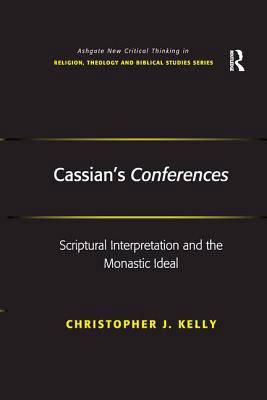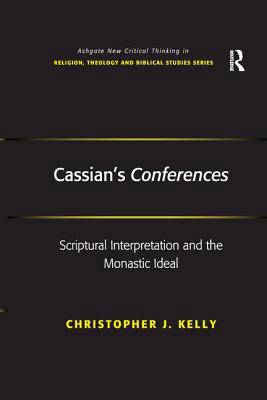
- Afhalen na 1 uur in een winkel met voorraad
- Gratis thuislevering in België vanaf € 30
- Ruim aanbod met 7 miljoen producten
- Afhalen na 1 uur in een winkel met voorraad
- Gratis thuislevering in België vanaf € 30
- Ruim aanbod met 7 miljoen producten
Zoeken
€ 122,45
+ 244 punten
Uitvoering
Omschrijving
This book explores Cassian's use of scripture in the Conferences, especially its biblical models to convey his understanding of the desert ideal to the monastic communities of Gaul. Cassian intended the scriptures and, implicitly, the Conferences to be the voices of authority and orthodoxy in the Gallic environment. He interprets familiar biblical characters in unfamiliar ways that exemplify his ideal. By imitating their actions the monk enters a seamless lineage of authority stretching back to Abraham. This book demonstrates how the scriptures functioned as a dynamic force in the lives of Christian monks in the fourth and fifth centuries, emphasizes the importance of Cassian in the development of the western monastic tradition, and offers an alternative to the sometimes problematic descriptions of patristic exegesis as "allegory" or "typology". Cassian has been described as little more than a provider of information about Egyptian monasticism, but a careful reading of his work reveals a sophisticated agenda to define and institutionalize orthodox monasticism in the Latin West.
Specificaties
Betrokkenen
- Auteur(s):
- Uitgeverij:
Inhoud
- Aantal bladzijden:
- 148
- Taal:
- Engels
- Reeks:
Eigenschappen
- Productcode (EAN):
- 9781138249493
- Verschijningsdatum:
- 6/09/2016
- Uitvoering:
- Paperback
- Formaat:
- Trade paperback (VS)
- Afmetingen:
- 156 mm x 234 mm
- Gewicht:
- 222 g

Alleen bij Standaard Boekhandel
+ 244 punten op je klantenkaart van Standaard Boekhandel
Beoordelingen
We publiceren alleen reviews die voldoen aan de voorwaarden voor reviews. Bekijk onze voorwaarden voor reviews.








